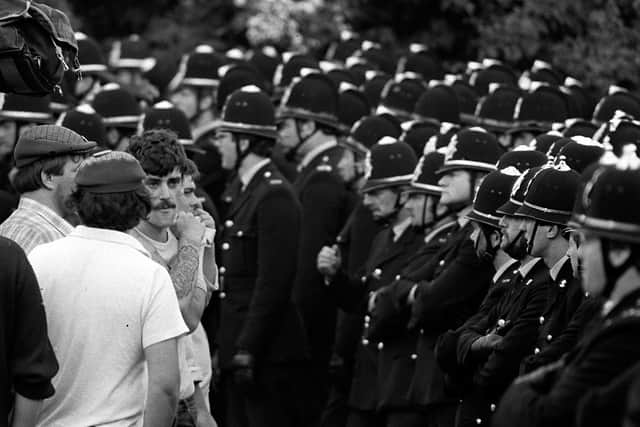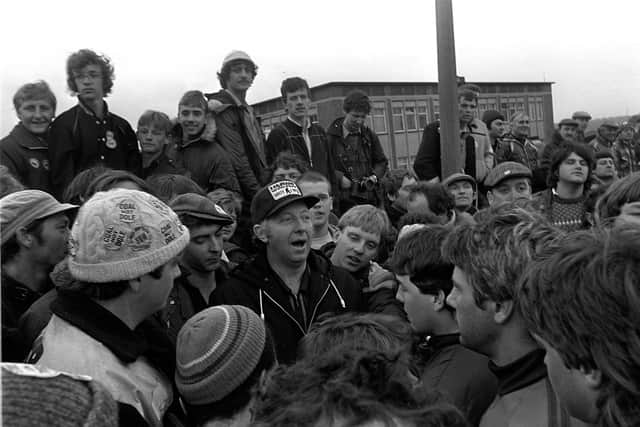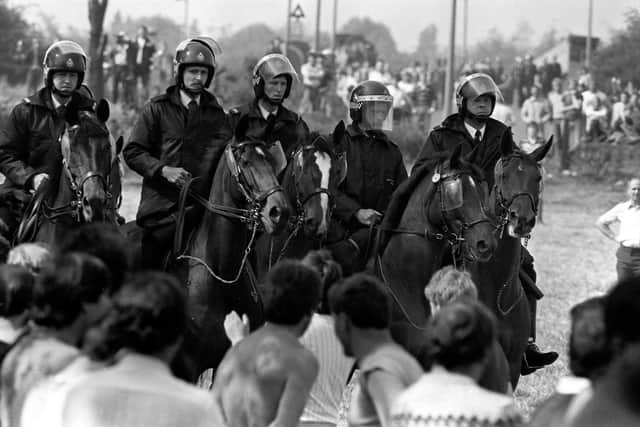Battle of Orgreave: 40 years since defining images of Miners' Strike
The miners’ strike of 1984-85 came to a head during a violent confrontation outside a coking plant in Rotherham on June 18 1984 in what became known as the Battle of Orgreave.
Four decades on and you could be forgiven for thinking that a day described as ‘almost medieval’ by historians as being a lifetime ago. But for those involved the emotions still run deep.
Advertisement
Hide AdAdvertisement
Hide AdThere is a sense of a lack of closure with requests for an official inquiry to take place being rejected time and again – the latest being in 2016 when the then Home Secretary Amber Rudd told Parliament there were no new lessons for current police forces to learn.


To look back on why the confrontation took place is to go into a past and a place, which is almost unrecognisable if you visit it today.
Where Orgreave coking plant once stood is the modern housing development of Waverley. That too is on the fringes of the world-leading Advanced Manufacturing Park, which houses the likes of Rolls Royce and McLaren.
In 1984, just three months into the dispute, thousands of miners had flocked to the site to try and stop lorries carrying coke to fuel steel furnaces in Scunthorpe. Smaller demonstrations had been made earlier in the strike but June 18 was to be different.
Advertisement
Hide AdAdvertisement
Hide AdPolice had been drafted in from forces far from South Yorkshire and running battles began to take place with police using ‘short shield’ tactics to pursue and arrest pickets.


Television pictures brought the horror of the day into people’s living rooms with hand to hand fighting taking place between the police and pickets.
However, it was the miners who took the full brunt of the violence with police officers in riot gear and mounted officers, armed with long truncheons, making several charges. In total 95 arrests were made.
Of those arrested 55 were charged with ‘riot’, a serious offence that can carry a life sentence, and 40 were charged with a less serious offence of ‘unlawful assembly’.
Advertisement
Hide AdAdvertisement
Hide AdWhen the case of 15 miners, all charged with riot, came to Sheffield Crown Court 11 months later the trial collapsed after 48 days. The Prosecution abandoned the case as it became clear that the accounts of the arresting police officers had often been dictated to them. The prosecutions of the other 80 miners were also dropped.


The Orgreave Truth and Justice Campaign (OTJC) continues to call for an inquiry over the policing of the year-long strike.
Each year the OTJC holds a march and rally to support calls for an inquiry with next year’s 40th Anniversary rally taking place in Sheffield city centre on Saturday, June 15.
